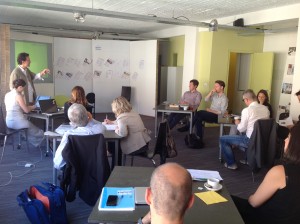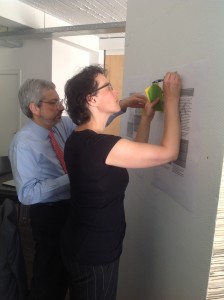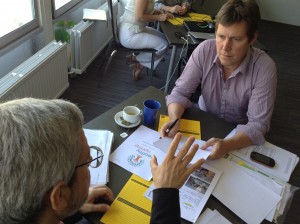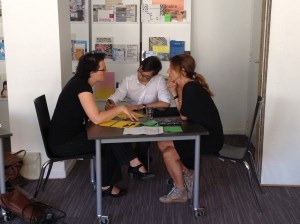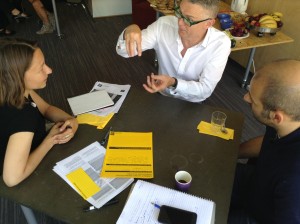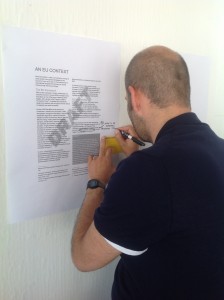First Workstream Exchange 03/07/2014
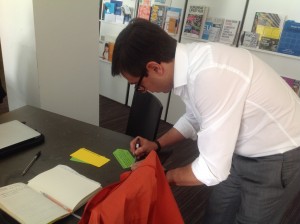
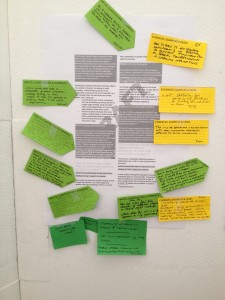
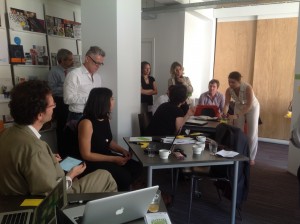
On 3 July 2014, by a sunny Thursday, we hosted our first meeting. “Workstream Exchange” is the name we gave to our meetings where experts and urban practitioners meet and transfer knowledge to each other – and to us – in order to feed into our study.
In particular, on that day, we really wanted to kick off this project which was launched at the end of May. Therefore, the meeting was the occasion to meet and introduce to each other in person after so many virtual contacts. Also, we introduced the research context and presented the work process. We discussed our first-to-be deliverable – the State of the Art document (online when finalised)- which proved to be a very fruitful and challenging exchange! We were particularly grateful for all the insights we gained as well as examples we gathered to enrich our document and general knowledge.
Here are the presentations made by our experts.
Fabio Sgaragli’s presentation on FabriQ incubator in Milan
Edina Vadovics’s presentation on benefit from and cooperation with grassroot actors
Anne de Feijter’s presentation on new collaboration system
We had a role game, where two partner cities brainstormed on the potential successes and failures to transfer initiatives from one to the other.
We discussed existing initiatives and finalised our methodology for the next 6 months.
At the outskirt of the discussion, we also finalised the research questions which shall guide our work.
How does city administration embrace social innovation? We shall be investigating the way cities play a new broker role, engage with residents, organisations and other stakeholders, develop networks, in order to co-create and co-produce.We will also investigate the involvement of civil servants and of the administration in general, the role played by leaders and training schemes. What are the usual obstacles and difficulties when applying social innovation? Social innovation cannot be applied easily and faces many cultural and political hurdles, as well as structural ones. The investment in terms of financial and human resources can appear to be too large to be overcome and legal structures preventing to undertake innovative approaches. This question will look at the main issues face for the application of social innovation, as well as the approaches undertaken by authorities to overcome them. What city platforms best support social innovation? Experimentation for social innovation is crucial. These experiments can take place in virtual as well as physical (real) environments. As such, we will investigate the advantages of the different forms: physical spaces (laboratories, existing or new places for meetings, co-working..); online spaces(interactive webpages, social media, ..); and, physical contacts without space limits (temporary outdoor activities, etc). We will make a distinction between between fragmented areas as opposed to compact ones. How can cities support the diffusion and scaling of social innovation? The last research question will seek to provide a balance in between the examined examples in order to adjust the extent to which they can be transferred within cities in light of differentiation between policy fields as well as equity. It will also investigate the main principles which can be applied notwithstanding the variety of cultures, practices and economical structures within European cities.
The participants of this meeting were the core team, our regular experts – who we call Core Group Member -, invited experts and urban practitioners – who we call Appointed Witnesses – and the URBACT Secretariat.
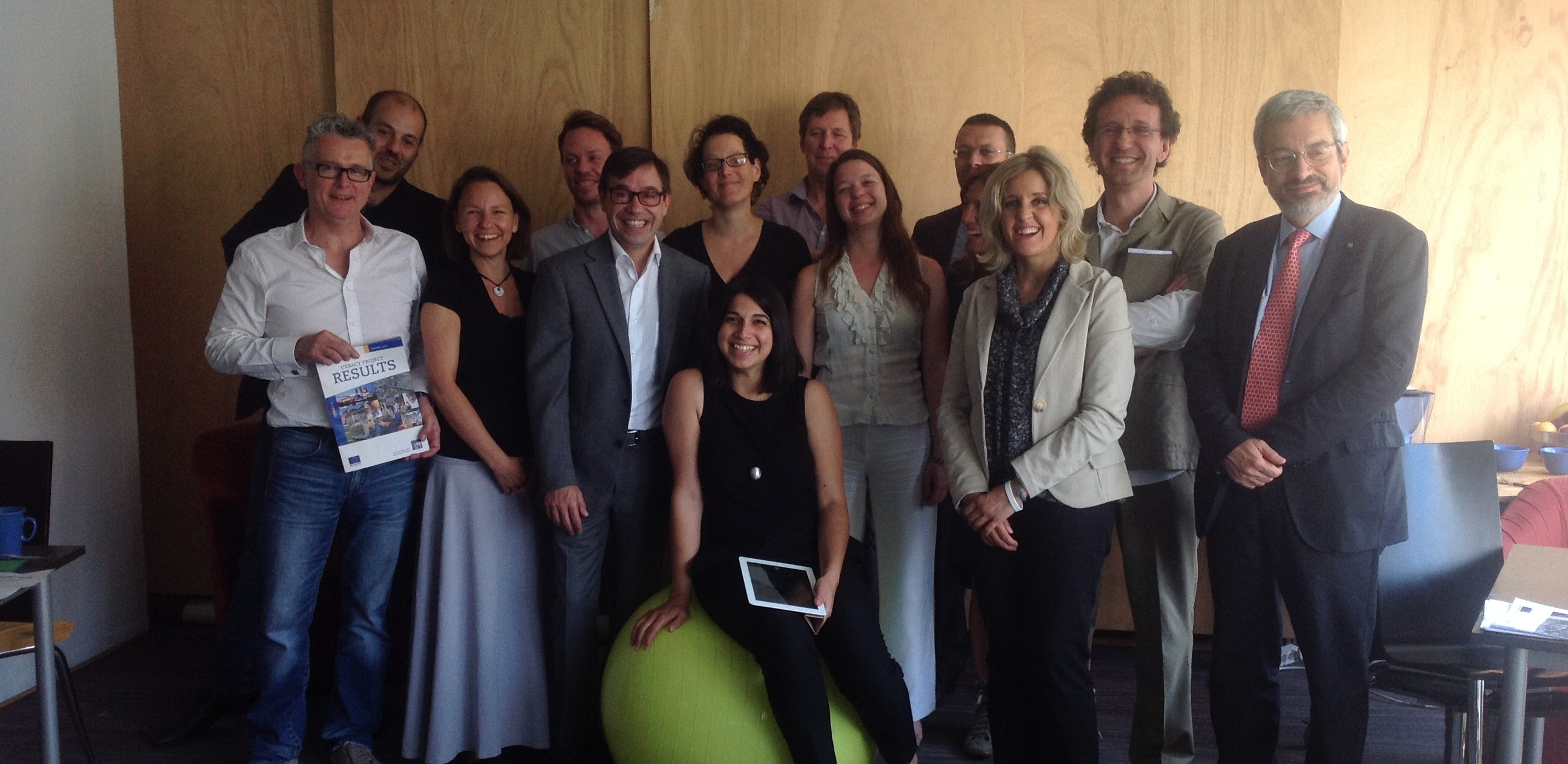 If you wish to get a flavour of the day, just have a look at the agenda!
If you wish to get a flavour of the day, just have a look at the agenda!
8.07.2014
The Workstream Coordination Unit
